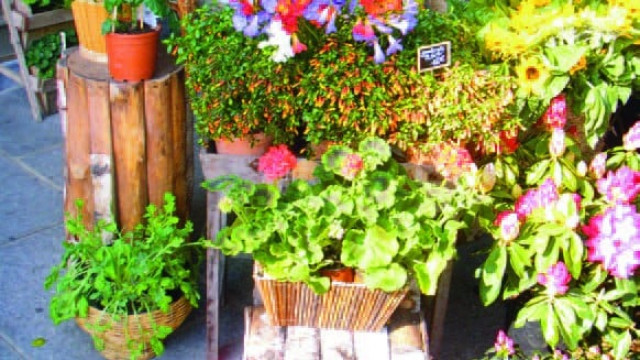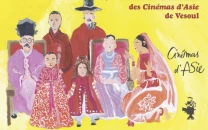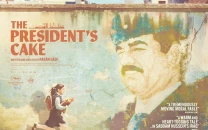Letter from Paris

Letter from Paris
Strolling hand in hand along the banks of the Seine, in parks, sprawled on chairs and benches, lying on the grass, wrapped tightly around each other, there are beaming couples everywhere. Paris wears its heart on its sleeve, and it’s arresting.
May in Paris: cherry blossoms in bloom, holiday tables under the sun, joie de vivre in the air. Paris in spring is a veritable feast for the senses. As the brutish winter makes way for the sun’s benign presence, Paris is a city in love.
Undoubtedly the fashion capital of the world, it is the epitome of style and taste. Like a butterfly emerging from a cocoon, the layers of onerous winter ensembles are being shed. Winter is black, grey, fawn, navy blue and beige, but spring boasts a plethora of colours. Fuschia, electric blue, cherry red, buttercup yellow, citrus orange, oyster pearl, Cadbury purple, powder blue— a head-turning parade of colour. Little wonder then, that sitting at cafés and people watching is a national pasttime.
The advertisements for Parisian marriage and dating agencies couldn’t be more different from Pakistani ads for fair and lovely brides with fat dowries. One fascinating ad states matter of factly, “Your ideal wife should be a blonde, sophisticated beauty, a flexible world citizen, childless and wealthy, incredibly adaptable, gentle and disciplined, of enticing femininity, speaking five languages, managing any public event, an excellent skier and horse rider, golfer, appears as 38 at age 50, slender 5’7”, presenting elegance, superb taste and instant readiness for new ventures… then she will enthuse you!” Another ad: “Very beautiful, radiant, slender, blonde lady, outgoing and sweet, multilingual, living in the south of France. Wishes to find a male companion who is well read, between 50 and 75 years old, to enjoy the pleasures of life such as travelling, opera, theatre, fine dining and dancing.”
Paris assails your senses, but one can have a panic attack lost in the babble of French. The beautiful language flows seamlessly but it makes the foreigner feel like a dullard. Mark Twain expressed his exasperation with Parisians in these words: “The Parisian travels but little, he knows no language but his own, reads no literature but his own, and consequently he is pretty narrow and pretty self-sufficient. However, let us not be too sweeping; there are Frenchmen who know languages not their own: these are the waiters. Among the rest, they know English; that is… they can speak it, but can’t understand it. They easily make themselves understood, but it is next to impossible to word an English sentence in such a way as to enable them to comprehend it. They think they comprehend it; they pretend they do; but they don’t.”
Things haven’t changed all that much since Mark Twain was here. Asking anyone at random if they speak English almost always elicits a “NO!” or a Gallic shrug of the shoulders. The French take pride in their language and expect newcomers to learn it with the correct pronunciation. It is sobering to compare their reverence for their mother tongue to the nonchalant attitude Pakistanis have for Urdu.
According to a recent survey, Paris is the most expensive city in the world. The windows of Paris can torment the newcomer. One cannot help gaping at the irresistible boutiques and restaurants whose prices touch the sky. For people who have tastes that far exceed their means, Paris can be frustrating. Gradually, one realises Paris is filled with affordable decadence — you just need to know where to find it. The French appreciate the value of the petit plaisir — the tiny luxury that all French people allow themselves from time to time. The principle of the petit plaisir is that we should treat ourselves to mini-extravagances once in a while.
It’s a philosophy which is in vogue in France, the culinary connoisseur’s paradise, where the food is so beautifully presented that it seems a crime to actually eat it. Paris is a veritable celebration of butter, baguettes, sugar, cream, chocolates, cheese, confectionary et al. But what is most striking is the almost absence of obesity, despite the rich diet. No spare tyres on display here. The key factor is moderation. The French do eat, and richly. But they choose their pleasures wisely, and savour them.
France has the largest Muslim population in Europe, and Islam is the second largest religion in the country. The French are known for taking pride in their secular culture. President Nicolas Sarkozy has stated, “The burqa is not a religious sign, it is a sign of the subjugation, of the submission of women...it will not be welcome on our territory.” A parliamentary panel has recommended that the burqa be banned in all public spaces such as schools and hospitals, but does not make it illegal to wear one on the streets or in “private buildings.” But the president has decided to go beyond the preference of many conservative lawmakers and instead he has has opted for an outright interdiction anywhere in public.
The burqa is a garment which has become synonymous with women’s oppression in Islam, but what does banning it have to do with the liberation of Muslim women? It is time for France to address its larger issue of Muslim integration. Banning the burqa is not going to force Muslim women to wear tank tops and voila, suddenly become more French.
However, the burqa ban has the unexpected support of Hassen Chalghoumi, a French imam. He agreed that France should not grant citizenship to immigrant women who cover their faces. “Having French nationality means wanting to take part in society. But with a bit of cloth over their faces, what can these women share with us? If they want to wear the veil, they can go to a country where it’s the tradition, like Saudi Arabia.”
An elderly French lady once asked me which country I was from. When I said “Pakistan” she was so startled that she nearly tripped. Then she paused and said firmly, “Well, it’s better that you are in France than over there!”
There is a small Pakistani community here which is happy to have the opportunity to make a life for itself in Europe, but is troubled by the constant barrage of bad news from home. There are so many plus points about Pakistan which are hardly ever brought up.
One way to bridge boundaries is through music. Pakistan’s Ustaad Faiz Ali Faiz and France’s Titi Robin proved that music is a universal language when they performed recently in Paris. Their outstanding jugalbandi brought the house down. The French were swaying to the strains of Mast Qalander and Ya Ali. Brazilian drums, Spanish guitar, accordion, gumbass, rhubab, tabla, dhol and harmonium blended harmoniously with Ustad Faiz’s rich voice. Amidst the constant requests for encores, it was a pleasure to see what great ambassadors our artistes are. Now the Pakistan Festival is being held under the auspices of the Alliance Francaise which will feature Zeb and Haniya and the Mekaal Hassan Band. East is East and West is West and never the twain shall meet? Monsieur Mark Twain, one way of bridging boundaries and removing misperceptions is through art and culture.
Vive la France et Pakistan!



















COMMENTS
Comments are moderated and generally will be posted if they are on-topic and not abusive.
For more information, please see our Comments FAQ